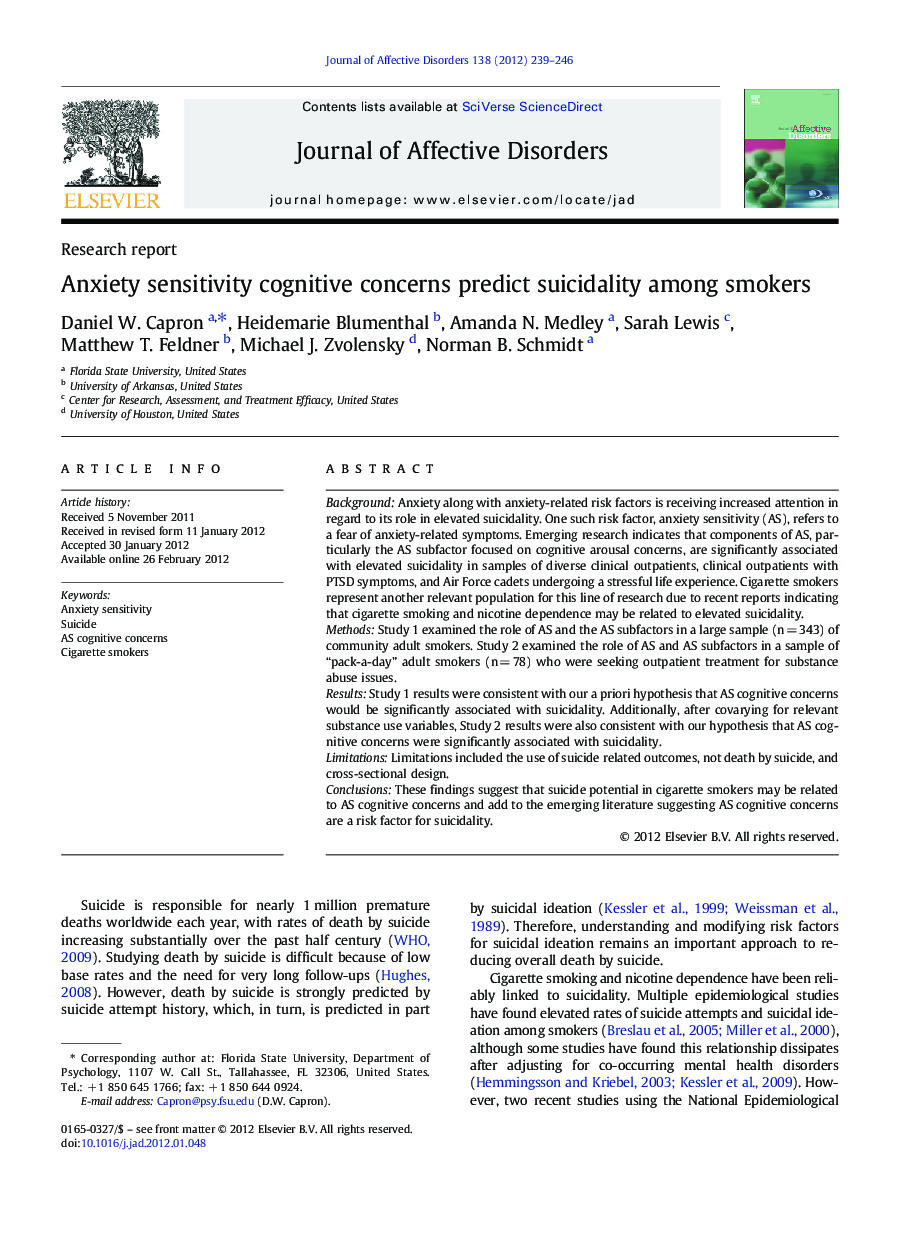| Article ID | Journal | Published Year | Pages | File Type |
|---|---|---|---|---|
| 6235899 | Journal of Affective Disorders | 2012 | 8 Pages |
BackgroundAnxiety along with anxiety-related risk factors is receiving increased attention in regard to its role in elevated suicidality. One such risk factor, anxiety sensitivity (AS), refers to a fear of anxiety-related symptoms. Emerging research indicates that components of AS, particularly the AS subfactor focused on cognitive arousal concerns, are significantly associated with elevated suicidality in samples of diverse clinical outpatients, clinical outpatients with PTSD symptoms, and Air Force cadets undergoing a stressful life experience. Cigarette smokers represent another relevant population for this line of research due to recent reports indicating that cigarette smoking and nicotine dependence may be related to elevated suicidality.MethodsStudy 1 examined the role of AS and the AS subfactors in a large sample (n = 343) of community adult smokers. Study 2 examined the role of AS and AS subfactors in a sample of “pack-a-day” adult smokers (n = 78) who were seeking outpatient treatment for substance abuse issues.ResultsStudy 1 results were consistent with our a priori hypothesis that AS cognitive concerns would be significantly associated with suicidality. Additionally, after covarying for relevant substance use variables, Study 2 results were also consistent with our hypothesis that AS cognitive concerns were significantly associated with suicidality.LimitationsLimitations included the use of suicide related outcomes, not death by suicide, and cross-sectional design.ConclusionsThese findings suggest that suicide potential in cigarette smokers may be related to AS cognitive concerns and add to the emerging literature suggesting AS cognitive concerns are a risk factor for suicidality.
